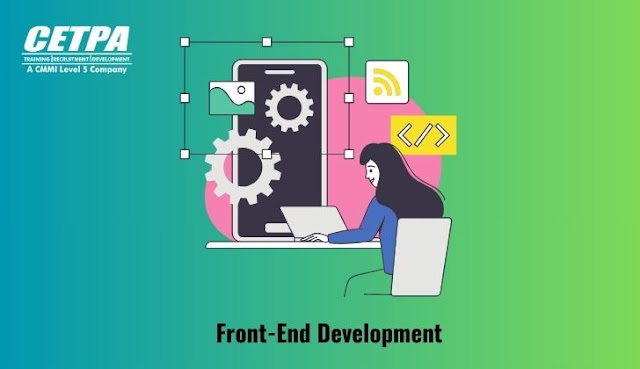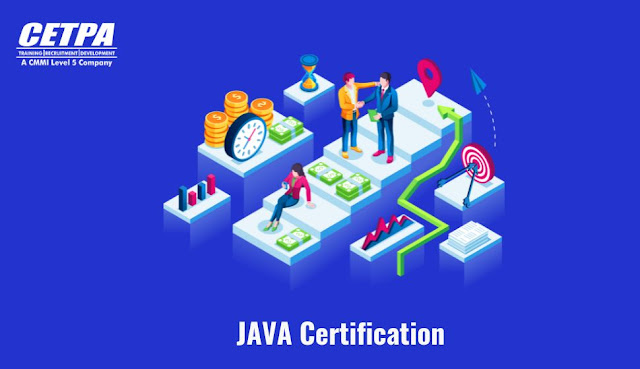Mastering Front-End Development: A Journey Through Certification
In today's digital age, the demand for skilled front-end
developers is ever-growing. With the constant evolution of web technologies and
user expectations, companies are seeking professionals who can create visually
appealing, responsive, and user-friendly interfaces. For aspiring developers
looking to break into this dynamic field, pursuing a front-end
development certification course can be a transformative step towards
acquiring the necessary skills and knowledge.
Why
Front-End Development Certification?
Front-end development certification courses offer structured
learning paths designed to equip individuals with a comprehensive understanding
of the technologies and concepts crucial for building engaging web interfaces.
These courses typically cover a range of topics including HTML, CSS,
JavaScript, responsive design, and frameworks like React or Angular.
Here are some compelling reasons to consider
enrolling in a front-end development certification course:
Structured Curriculum:
Certification courses provide a structured curriculum curated by industry
experts, ensuring that learners receive a well-rounded education covering
fundamental and advanced topics.
Hands-On Projects:
Practical experience is key
in front-end development. Certification courses often include hands-on
projects and assignments that allow learners to apply theoretical knowledge to
real-world scenarios, thereby strengthening their skills and building a
portfolio.
Mentorship and Support: Many
certification programs offer mentorship and support from experienced
professionals in the field. This guidance can be invaluable for clarifying
concepts, troubleshooting issues, and gaining insights into industry best
practices.
Recognition and Credibility:
Earning a certification from a reputable institution or organization can
enhance your credibility as a front-end developer in the eyes of employers. It
serves as tangible proof of your skills and commitment to continuous learning.
The Learning Journey
Embarking on a front-end development certification journey is
akin to setting sail on a voyage of discovery and growth. Let's outline the
typical phases of this transformative journey:
Foundation Building: The
journey begins with laying a solid foundation in HTML, CSS, and JavaScript.
Learners delve into the core principles of web development, understanding how
to structure content, style elements, and add interactivity to web pages.
Exploring Advanced Concepts: As
learners progress, they explore advanced concepts such as CSS preprocessors
(e.g., SASS, LESS), front-end frameworks (e.g., React, Vue.js), and build tools
(e.g., Webpack). This phase challenges learners to think critically and
creatively to solve complex problems.
Specialization and Depth: With
a strong grasp of the fundamentals and advanced techniques, learners may choose
to specialize in specific areas such as responsive design, animation, or
accessibility. This specialization adds depth to their skill set and allows
them to carve out a niche in the competitive job market.
Portfolio Development:
Throughout the journey, learners work on building a portfolio showcasing their
projects and accomplishments. A well-curated portfolio not only demonstrates
technical proficiency but also highlights creativity, problem-solving
abilities, and attention to detail.
Exam and Certification: The
culmination of the journey is often marked by an exam or assessment to evaluate
the learner's understanding and proficiency. Upon successful completion,
learners are awarded a certification, symbolizing their achievement and
readiness to embark on a career as a front-end
developer.
Beyond Certification: Lifelong Learning
Earning a front-end development certification is a
significant milestone, but it's important to recognize that learning in this
field is an ongoing process. Technologies evolve, trends shift, and new tools
emerge regularly. As such, embracing a mindset of lifelong learning is
essential for staying relevant and competitive in the ever-changing landscape
of front-end development.
Continuing education can take various forms,
including:
Staying Updated:
Keeping abreast of the latest developments in front-end technologies through
blogs, forums, and industry publications.
Exploring New Tools and Frameworks:
Experimenting with new tools, libraries, and frameworks to expand one's skill
set and stay adaptable.
Contributing to Open Source:
Engaging with the open-source community by contributing code, reporting issues,
or participating in discussions.
Attending Workshops and Conferences: Participating in
workshops, seminars, and conferences to network with peers, gain insights from
experts, and stay inspired.
Conclusion
A front-end development certification course is not just
about acquiring a piece of paper; it's about embarking on a transformative
journey that equips individuals with the skills, knowledge, and confidence to
thrive in the fast-paced world of web development. By embracing continuous
learning, staying curious, and honing their craft, certified front-end
developers can make meaningful contributions to the digital landscape and shape
the future of the web. So, if you're passionate about creating compelling user
experiences and shaping the digital world, consider setting sail on this
exciting journey of front-end development certification. Bon voyage!
Ref link: https://shorturl.at/dejR7




Comments
Post a Comment